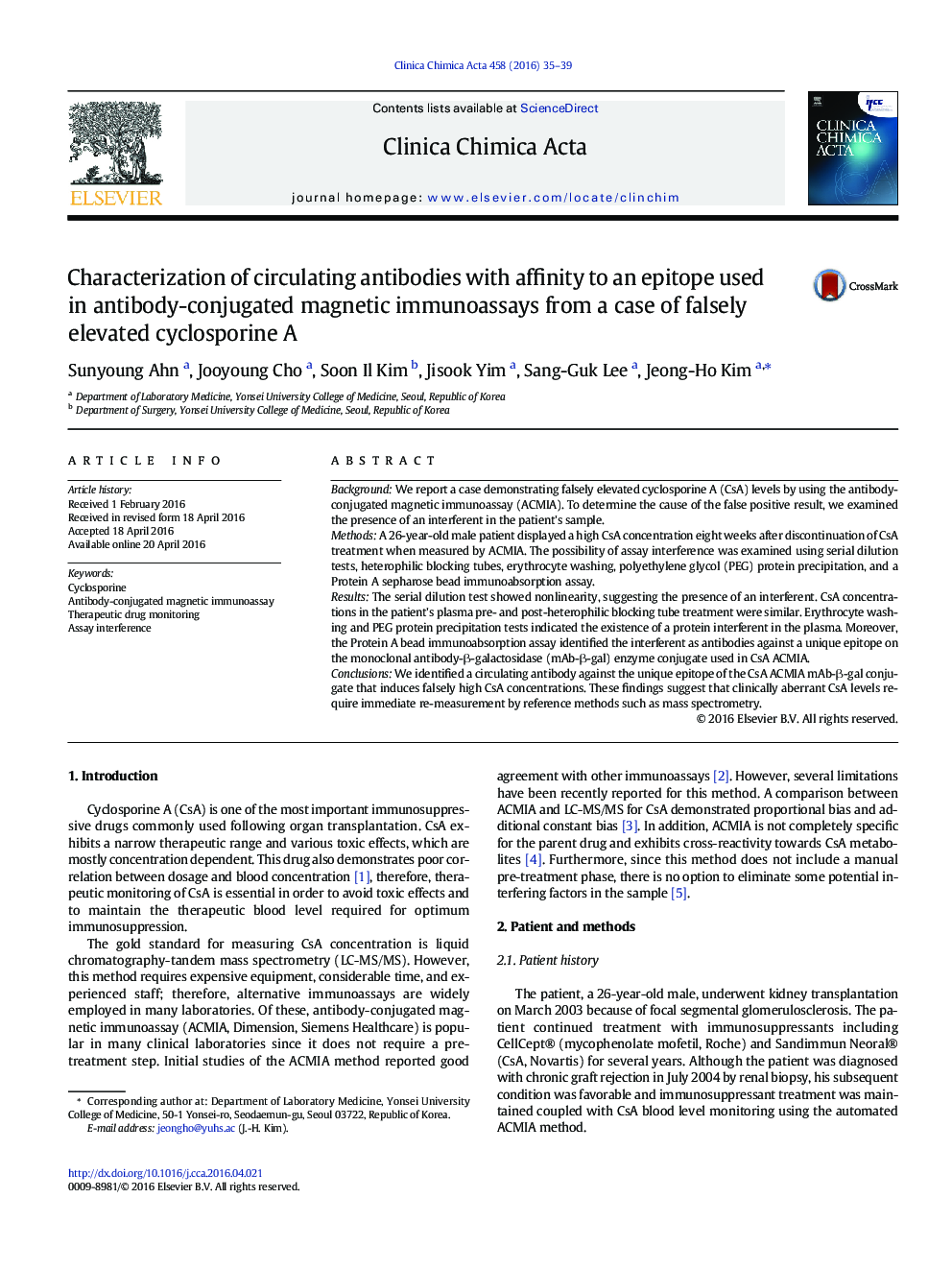| Article ID | Journal | Published Year | Pages | File Type |
|---|---|---|---|---|
| 1965099 | Clinica Chimica Acta | 2016 | 5 Pages |
•Cyclosporine A level measured by ACMIA was falsely increased compared with dosage.•Interference due to circulating antibodies was suspected to cause elevated CsA.•These antibodies have affinity to a unique conjugate epitope used in the ACMIA.•Clinically aberrant CsA levels require re-measurement by another reference method.
BackgroundWe report a case demonstrating falsely elevated cyclosporine A (CsA) levels by using the antibody-conjugated magnetic immunoassay (ACMIA). To determine the cause of the false positive result, we examined the presence of an interferent in the patient's sample.MethodsA 26-year-old male patient displayed a high CsA concentration eight weeks after discontinuation of CsA treatment when measured by ACMIA. The possibility of assay interference was examined using serial dilution tests, heterophilic blocking tubes, erythrocyte washing, polyethylene glycol (PEG) protein precipitation, and a Protein A sepharose bead immunoabsorption assay.ResultsThe serial dilution test showed nonlinearity, suggesting the presence of an interferent. CsA concentrations in the patient's plasma pre- and post-heterophilic blocking tube treatment were similar. Erythrocyte washing and PEG protein precipitation tests indicated the existence of a protein interferent in the plasma. Moreover, the Protein A bead immunoabsorption assay identified the interferent as antibodies against a unique epitope on the monoclonal antibody-β-galactosidase (mAb-β-gal) enzyme conjugate used in CsA ACMIA.ConclusionsWe identified a circulating antibody against the unique epitope of the CsA ACMIA mAb-β-gal conjugate that induces falsely high CsA concentrations. These findings suggest that clinically aberrant CsA levels require immediate re-measurement by reference methods such as mass spectrometry.
